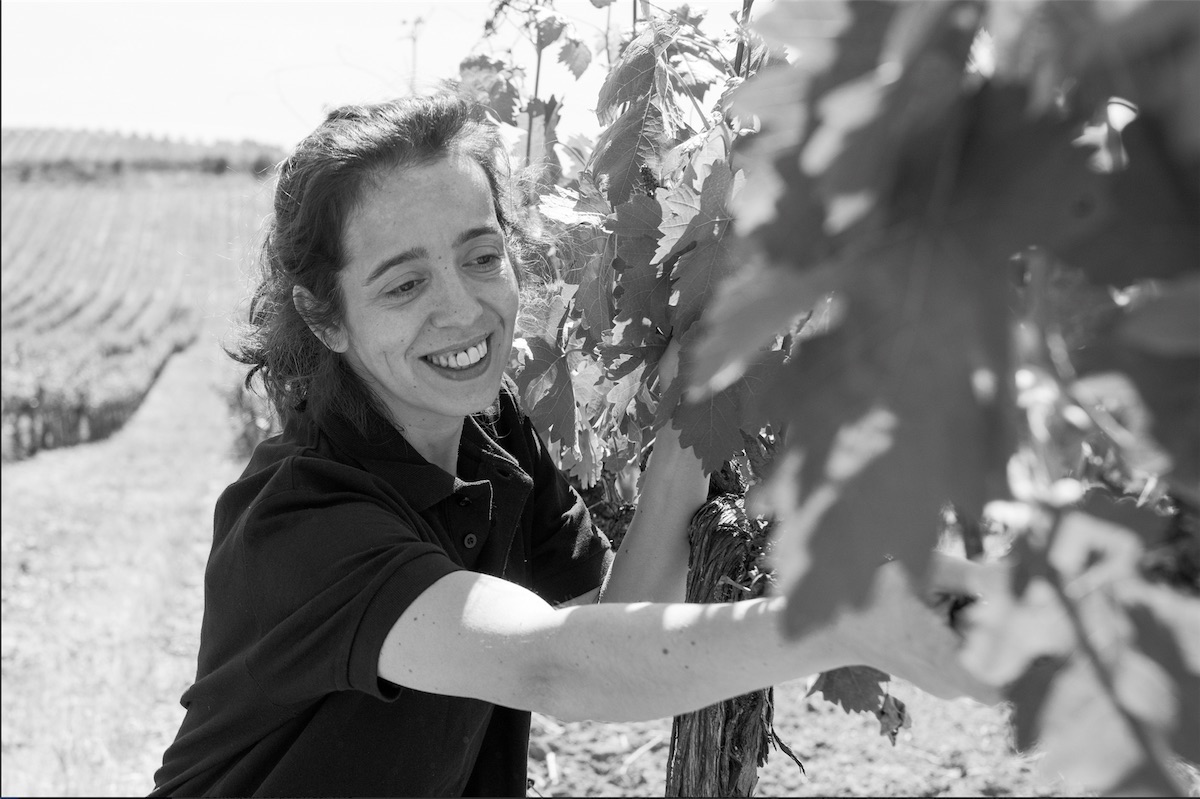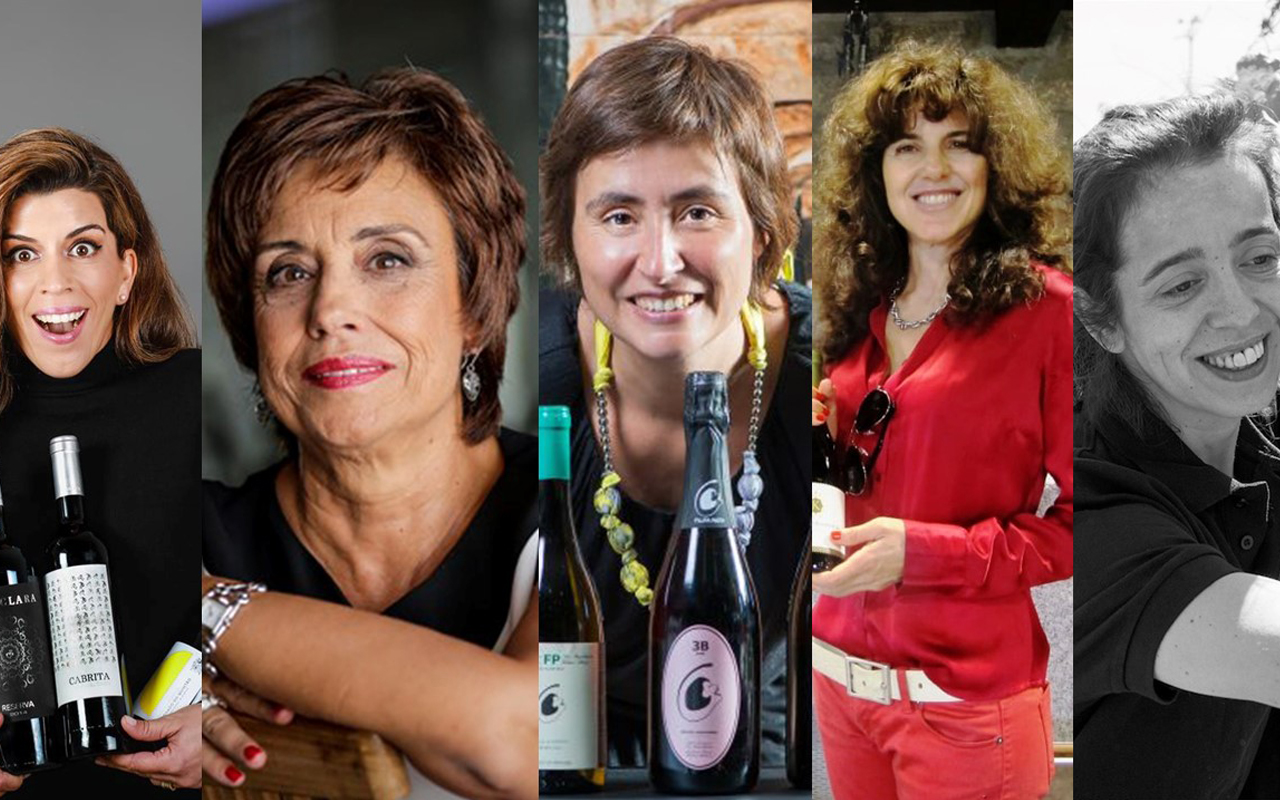In March we celebrate International Women’s Day, so let’s take a look into the wine world of Portugal to meet some successful women and their wines and to see what is the role of women in the Portuguese wine industry.
Although Romans, that played a pivotal role in the history of wine, believed that wine was a daily necessity and made the drink available to men and women alike, things changed a lot over the centuries. About 30 years ago, the wine industry was male-dominated at every level. Women sommeliers were rare as recently as 20 years ago. But don’t seem so anymore.
Today, women winemakers are common, and some wineries have advertised specifically looking for a woman to take the post. And it is already a well-documented fact that women have superior tasting abilities to men, performing more precisely and consistently in experiments. So, why do people still tend to think that wine is a man’s thing?
Nowadays, more than one-third of the oenologists are women and women have been forging ahead in wine production even in Latin cultures such as Chile, Argentina, Spain, and Portugal.
On April 25, 1974, Portugal experienced a coup, a nearly bloodless revolution that’s commonly known as the Carnation Revolution. This moment was key in the evolution of women’s rights and women’s presence in the labor market, as it democratized and opened Portugal to the rest of the world.
Although women’s access to leadership in companies, particularly in the wine sector, is still lower than men’s, we prefer to look at the glass half full, because the majority of Portuguese graduates are women.
The women entering the market are not only directly affected by their training and previous work experience, but also their unique way of seeing the world.
Consequently, in today’s world, it’s irrelevant if a woman comes from a large, established wine family. What matters is her raw determination, passion, and knowledge to bring wine to new heights.
Gladly, today we can say mostly that the number of successful and talented female oenologists is increasing almost as fast as the success of Portuguese wines worldwide. Here in Portugal, women have changed the wine landscape dramatically. Today, there is a vibrant group of women working in the Portuguese wine industry who each hail from a different region. Together, they are working as a united force to carry Portuguese wine around the world.
And maybe more importantly, it’s their undying passion and love of wine – Portuguese in particular – that makes them fantastic ambassadors for Portugal.
Joana Maçanita, from Douro
Joana Maçanita is known as being a very dynamic winemaker. She started work in 2004 in the world of wines to help her brother, António Maçanita, start a project in Alentejo, Fita Preta Vinhos & Sexy Wines.
She graduated as an Agricultural Engineer at the Instituto Superior de Agronomia in Lisbon and worked during her studies in different wineries in Portugal. Then, she traveled to Australia, to work at one of the famous McLaren Vale’s most prestigious wineries, deepening her knowledge of white wines.
Back in Portugal, she – with her partners – created an Oenological Consulting company to support producers in the creation of new projects in the Douro, Alentejo, Lisbon and Algarve regions, to create wines that have won awards over these 10 years through contests and critics worldwide.
Joana was invited also to be a judge at the International Wine Challenge, in London, and Wine Masters, in Estoril.
In 2009, she developed a training project for the restaurant and bar courses at Azores Tourism and Hotel School.
And in 2011, she started her wine project, Maçanita Vinhos, in the Douro, with her brother António Maçanita. Now, she is still focused on her project.
Joana Maçanita’s perseverance and involvement in her projects have borne foreseeable fruit.
In 2012, she took over as Project Director for five wine producers in the Algarve region, Cabrita Wines, João Clara Vinhos, Edd’s Quinta do Barradas, Quinta da Malaca, and in 2016, the producer Morgado do Quintão joined the team.
She invested in native grape varieties such as the red Negra Mole and the white Crato grapes, revealing all the potential of the region.
And the same time she launched her first book “Branco ou Tinto” (White or Red), a useful approach to how to buy, serve, taste, and harmonize wine.
She was nominated for “Young Winemaker of the Year in 2018”, and for “Breakthrough Winemaker” in 2019.
My suggestion to taste:
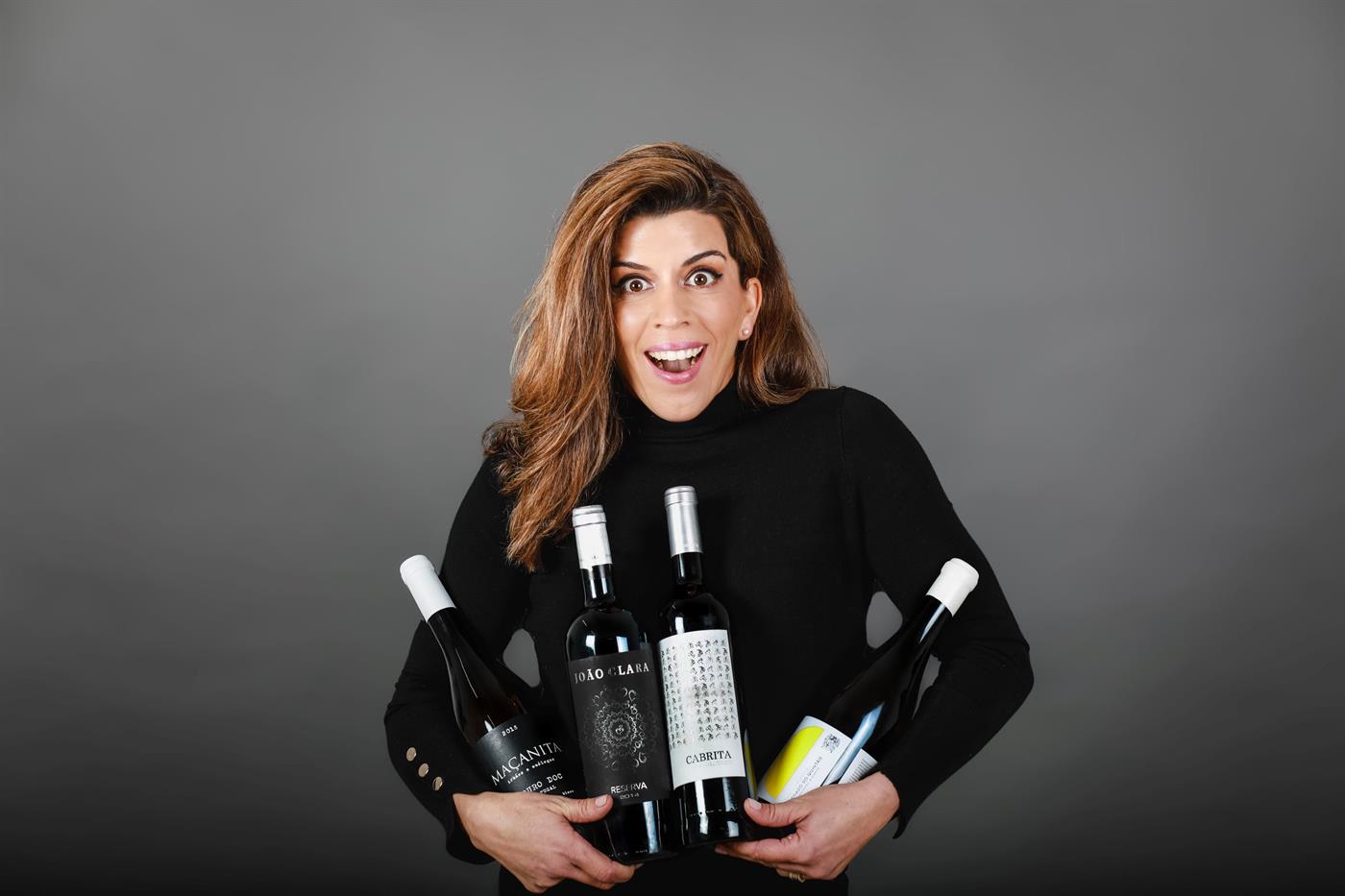

Filipa Pato, from Bairrada
Filipa Pato is a viticulturist in Bairrada. With a degree from the University of Coimbra in chemical engineering, she refined her skills not only with her father, Luís Pato, ‘the Baga rebel’, but as a winemaker by harvesting in Bordeaux (France), Mendoza (Argentina), and Margaret River (Australia).
A chemical engineer and rebel like her father, Filipa Pato bet on her own career in 2001, with the launch of an experimental wine that helped bring into her life her husband and business partner, the Belgian William Wouters, who was a chef, sommelier champion and restaurateur.
They are a magical couple who shares all their experiences: the love of gastronomy and wine encounters with great wine producers, sommeliers and wine lovers from all over the world and the magical and inexhaustible culture of the world of wine.
Their philosophy is to create authentic wines that faithfully reflect their origin. Focusing only on traditional Bairrada varieties, they work exclusively with Baga, Bical, Arinto, Cercial and Maria Gomes grapes.
The vineyard is their priority, and from an early age, they abandoned the use of herbicides, in favor of soil health and biodiversity in the vineyard. In the cellar there is minimal intervention, the grapes are selected in the vineyard, they ferment with indigenous yeasts, and use ancestral methods such as wooden presses and amphora. They create “Terroir” wines, uniting knowledge, art and nature, so each wine has its own character.
And twenty years later, their Nossa wines are present in more than 40 countries.
Filipa was awarded ‘Winemaker of the year 2020’ by Revista de Vinhos, the leading Portuguese wine magazine.
My suggestion to taste: Nossa Missão Baga pre-phylloxera
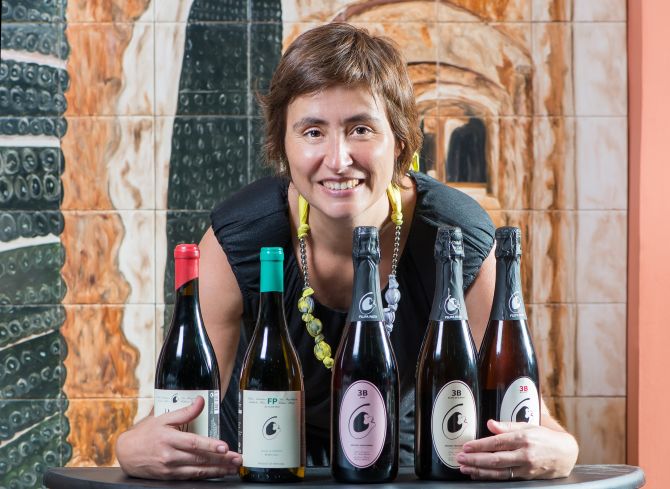

Leonor Freitas, from Península de Setúbal
Casa Ermelinda Freitas winery needs no introduction, but it is essential to talk about her whenever the theme is women and wine. Ermelinda Freitas was a kind of Dona Antónia Ferreira, first in the Setúbal Peninsula, now in the Vinho Verde region, and in the Douro as well.
The winery was established in 1920 by Leonilde Freitas, continued by his granddaughter, Germana, and later by his great-granddaughter, Ermelinda Freitas, to whom Casa Ermelinda Freitas owes its name. With the premature death of her husband, Ermelinda continued to manage the company with her only daughter, Leonor, who took command and consolidated the tradition of having women running the company.
As an only child, Leonor entered the world of wine after her father’s death, in order to avoid selling the vines. In the early 1990s, the public health professional knew nothing about wine, but she inherited 60 hectares of vineyards in Setúbal and grew her family income from tens of thousands to a turnover of millions of euros.
The markedly matriarchal nature of this family business has ensured its continuity, through the commitment and dynamism of her daughter, Joana, who already forms a key part of its structure and development strategy.
This is a house that has long prided itself on being managed by women.
The winery is located in the Setúbal Peninsula region, at one end of the village of Fernando Pó.
From its inception until 1997, the wines produced were sold unbranded and in bulk. With the arrival of Leonor, everything changed, the wines began to be bottled and the first brand of red wine, “Terras do Pó”, appeared.
In 1999, confident in the commercial results achieved, the company launched the Dona Ermelinda and Quinta da Mimosa brands. And in 2001, the top-of-the-range Leo d’Honor was launched, produced from the old Castelão vineyards, which proved a great success with critics and in the market. Since 2002, all wine produced has been sold under the brands created and developed by Casa Ermelinda Freitas.
In 2002, it was decided that all the wine produced should be bottled, the winery was equipped with state-of-the-art technology and a great step was taken towards Casa Ermelinda Freitas reaching its current size and prestige. The area of vineyards continued to expand. Currently, more than 6 million bottles are produced and there is a capacity for the fermentation of 10 million liters in temperature-controlled stainless steel vats. The company produces a complete range of wines.
“There are no professions for men and women, only there are the right people in the right places” – says Leonor. Everything that wine gives, they invest in it. This is their motto. Their family lives in comfort, but luxuries don’t appeal to them. Their only extravagance is to buy another vineyard. That is what makes them happy.
My suggestion to taste: Leo d’Honor D.O. Palmela
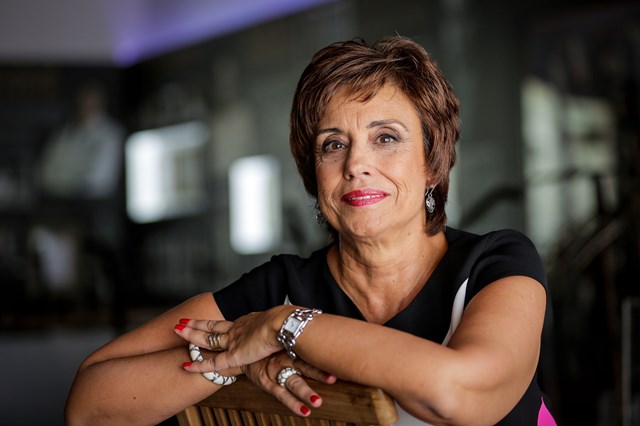

Julia de Melo Kemper, from Dão
Julia de Melo Kemper, a Lisbon-based lawyer, was called back to her family vineyards by her father’s inheritance, in 2000. But she held out, and it wasn’t until 2003 that Julia responded to the call of the land, and began farming organically at the Quinta do Cruzeiro.
The Quinta is located among the Dão mountains, where vineyards are treated according to organic and sustained agriculture. It is also the place where their wine cellar is set, where modern and ancestral grape treading techniques are aligned to transform the crops into fantastic wines. They replanted a range of local varieties and remodeled the cellar’s granite walls, keeping the ‘lagares’.
The Melo family has grown grapes in the Dão region for several generations, but the wines began to be sold internationally in 2010 when the first red vintage (2008) hit the market. And after 10 harvests (2008 – 2018) Julia Kemper wines are known and sold in more than half of the world. Since that time, Julia has risen to be one of the top producers in the Dão region in Portugal.
Julia Kemper Wines continues its production in its Portuguese vineyard to produce some of the best organic wines in its rustic Portuguese cellar adapted to modern winemaking.
Their main goal is to produce top Portuguese wines, using biodynamic and organic techniques, which implies constant work and learning; and, above all, dedication and an enormous passion. And this results in the production of a high-quality organic and vegan wine brand.
The unusual quality of the Julia Kemper wines has been recognized nationally and internationally, being part of the 50 best Portuguese wines for several years and receiving several honors and important prizes in Portugal and around the world.
Like their furthest ancestors, Julia believes in the balance and biodiversity of nature and wants to be a part of it.
My suggestion to taste: Julia Kemper Reserve White
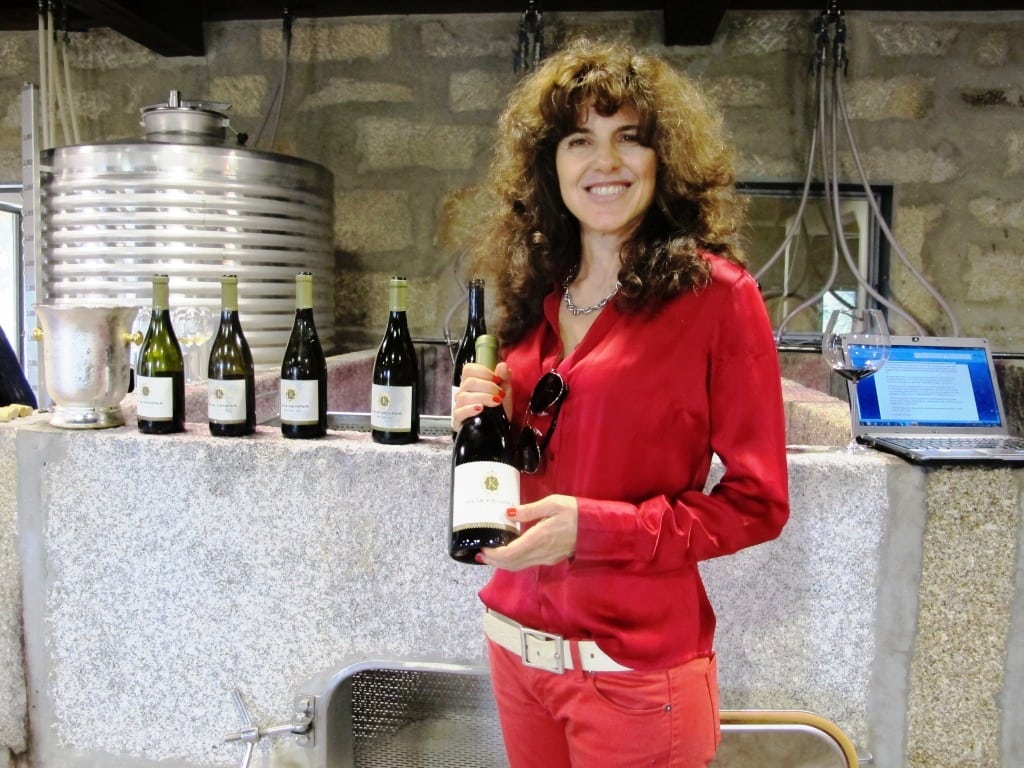
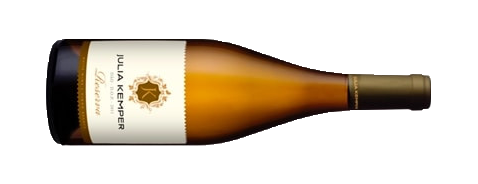
Catarina Vieira, from Alentejo
Catarina’s relationship with wine began with the land and the vineyard. She grew up with and admiration for her grandparents and their connection to the land. Although she’s not sure if it was the bicycle rides with her grandfather to the vineyards when she was little that determined her passion for wine.
She took the Agronomy course, which gave her a concrete perspective. The central concern in her work with sustainability at all stages of the wine-making process.
In 2013, her husband, Pedro joined the winery and, together, they work on wines that they want to be elegant with freshness and minerality, and also very gastronomic. The two fight for something they consider absolutely essential: slowing down the impact of climate change.
The investment in winemaking began in 2000 with the Herdade do Rocim. The estate with approximately 120 hectares, of which 70 hectares are vineyards, is situated between Vidigueira and Cuba in the Baixo Alentejo.
The first years were dedicated to the restructuring and qualification of the estate, with the planting of new vines and the introduction of new wine grape varieties. Then, the cellar was built and the production of wine with its own brands started.
Today, Rocim is renowned for the quality of its wine and cellar and speaking of its history is speaking of a dream. The main goal of the company is customer satisfaction, but special attention is given to technical training and improvements in communication technologies.
Winemaking at the Herdade do Rocim is inspired by the minimum intervention philosophy. All the viticulture operations are carried out manually, from the winter pruning through interventions in green until the harvest, where the human hand has a key role.
They combine the expertise of modern oenology with ancestral winemaking methods such as Alentejo talha wines and the grape treading on stone wine press.
My suggestion to taste: Herdade do Rocim, Alicante Bouschet
